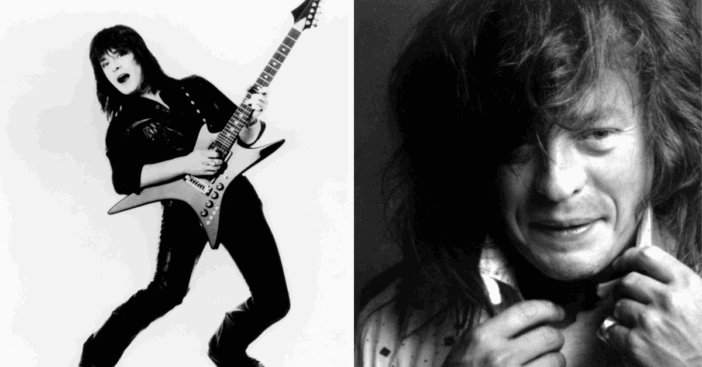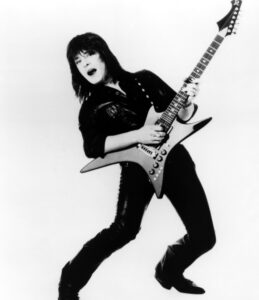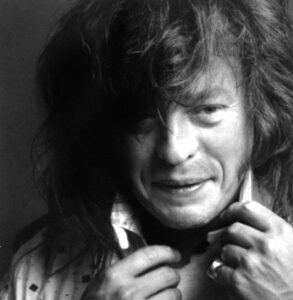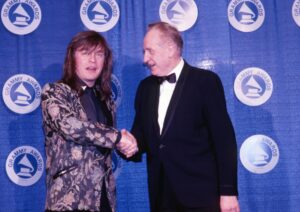
- Rick Derringer died on the morning of Monday, May 26, at the age of 77.
- No cause of death has been confirmed by time of writing, though he was contending with poor health recently.
- Derringer was a guitar mastermind responsible for “Hang On Sloopy” and “Rock and Rool, Hoochie Koo,” among others.
Musical artist Rick Derringer has died. He passed away on May 26, at the age of 77. No official cause of death has been declared by time of writing, but Variety notes that Derringer had contended with health problems in recent months. News of his passing was confirmed by his caretaker, Tony Wilson.
Rick Derringer was best known for his searing guitar work and his signature hit “Rock and Roll, Hoochie Koo,” a 1970s anthem that became a staple of classic rock radio. He first rose to fame as a teenage prodigy with The McCoys, scoring a number one hit in 1965 with “Hang On Sloopy.” Later, he cemented his place in rock history through collaborations with legends like Johnny Winter, Edgar Winter, and Steely Dan, while also producing and performing with numerous artists across genres. Derringer’s fiery solos, gritty vocals, and songwriting swagger made him a standout in an era packed with guitar gods.
A rockin’ rise to fame

Rick Derringer was born Rick Zehringer on August 5, 1947, in Fort Recovery, Ohio, and grew up in a musical household that encouraged his early love of rock and roll. He formed his first band in his teens, eventually settling on The McCoys with his brother Randy and a few high school friends. In 1965, while still in high school, Derringer’s career exploded when The McCoys’ version of “Hang On Sloopy” knocked The Beatles off the top of the Billboard charts. With that success, the group suddenly found themselves opening for the biggest acts of the day, including The Rolling Stones and The Doors.
Though The McCoys’ initial fame was brief, Derringer quickly proved he was more than a one-hit wonder. He immersed himself in the evolving world of blues rock, linking up with guitar powerhouse Johnny Winter and later joining forces with Edgar Winter’s band. Derringer’s guitar solos lit up iconic tracks like “Frankenstein” and “Free Ride,” and in 1973, he struck solo gold with “Rock and Roll, Hoochie Koo.” The track, packed with attitude and swagger, became his signature and solidified his status as one of the era’s premier rock guitarists.
Rick Derringer reshaped the music landscape

Throughout the ’70s and ’80s, Derringer built a reputation not only as a performer but also as a sought-after producer. He worked with names like Cyndi Lauper and Weird Al Yankovic, and lent his skills to projects ranging from rock albums to novelty songs. His versatility kept him in demand, even if his name wasn’t always on the marquee. He was also known for his association with pro wrestling, penning Hulk Hogan’s entrance theme “Real American,” which became a pop culture staple all its own.
In the latter part of his career, Derringer embraced life as a road warrior, continuing to tour and record music well into his seventies. He shifted toward Christian rock later in life after a spiritual reawakening, producing gospel-inflected albums that reflected his new outlook. Despite changes in the music industry and his personal beliefs, he remained fiercely committed to his guitar and his craft. Derringer continued to perform for devoted fans, always bringing the same energy that first put him on stage as a teen.
Outside of music, Derringer led a quieter life with his wife, Brenda, and their two children. He occasionally made headlines for his outspoken political views, but he was just as often remembered for his generosity and enthusiasm when meeting fans. Whether shredding on stage or mentoring younger musicians, Derringer was known for his deep love of rock and roll’s raw spirit. His legacy is that of a musician’s musician—one who never stopped chasing the next great riff.

